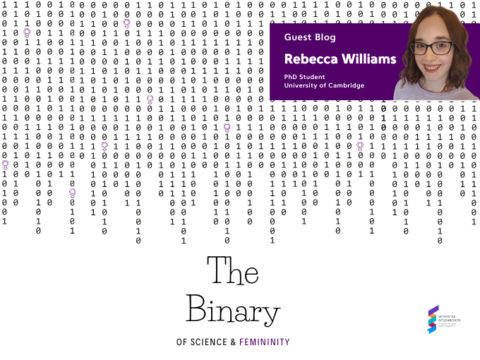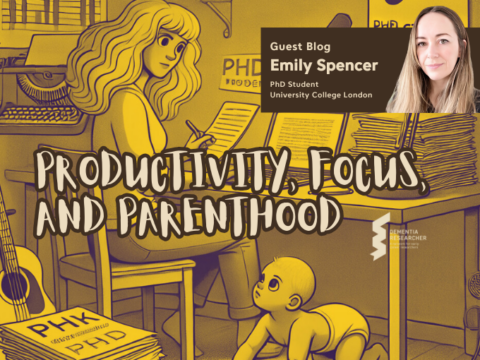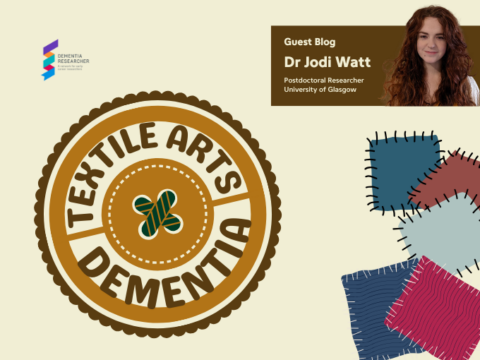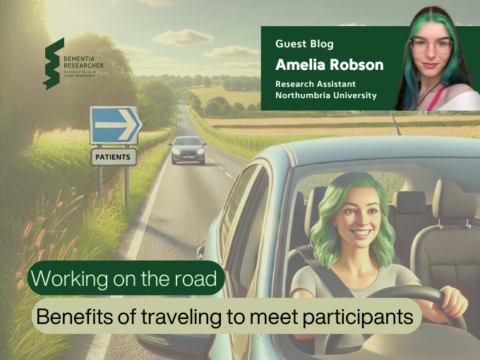As a university lecturer and scholar focused on dementia and poetry, my journey into this field has been personal and professional.
I am engaged in academic research and work on the frontlines of dementia care. My role as a bank staff with the Nottinghamshire Healthcare NHS Foundation Trust has taken me across various care homes and hospitals in the East Midlands, where I have witnessed first-hand the complexities and challenges faced by individuals living with dementia. Additionally, as a Call Companion for the Alzheimer’s Society and a Digital Intern for Alzheimer’s Disease International (ADI), I support the well-being of people with dementia and their carers through weekly phone conversations, community engagements and social strategies, offering a compassionate ear and practical and expert counsel. The above roles have had a significant influence on my writing.
“Poetry is an essential safety valve of relief and release.” – Dowling (2014)
My background as an African creative writer and scholar is steeped in the rich tradition of African folktales and culture, particularly those involving the trickster tortoise, which has profoundly shaped my approach to storytelling. These tales are often used to convey didactics and cultural values, which resonate with my belief that human experience is a story waiting to be told. In the structured environment of a dementia ward, where each shift is a cycle of care and compassion, countless narratives deserve to be captured and shared. This is where poetry, with its ability to distil complex emotions and experiences into a few potent lines, becomes an invaluable tool.
There is a growing interest in using arts-based approaches, especially poetry, to support the quality of life and well-being of people with dementia and their carers. I am motivated to compile poems that reflect life’s realities within dementia wards. These poems serve as a creative signature and a means to advocate for the dignity and personhood of those affected by dementia.
My ongoing poetry collection draws heavily from the stories and experiences of caring for people with dementia. The following poems, ‘Mama I Did It Again’ and ‘Unwelcomed Couples,’ are particularly poignant examples, capturing the emotional complexity of dementia care. Often, these poems were written during brief moments of reflection, hastily scribbled on paper towels during my breaks. They are creative assets that validate the enduring humanity of people with dementia, their ability to recall memories, and the emotional connections they treasure.
Mama I Did It Again!
Life is like a sabra of bitter-sweet,
From the liminal ebb of the amniotic traps,
To a baby’s first and final cries,
But in the tempest of sickness, the mother-son cord snaps,
Even with dementia
The brain-teaser,That unlooses strong men’s band,
Discharges of faecal and urinary matters,
Sanction modest and privileged elites to timeless sections in dementia wards,
Even noble men and women puke like babies,
And commoners wander like toddlers,
With straps of pads to tension unprovoked leakages,
Yesterday’s memories today’s shadows,A castle of ruined wards,
Dementia bleaks beautiful mother-son memories,
Like a taunting confessor voicing through a Cathedral’s-stained glasses,
The bizarre disease is a mix of facts and fantasies,Leaving demented patients in abysmal dreamy wonderlands,
Can you hear me, Mama?
While the patient swims in a pool of concentrated wee,
With a frustrated relief, “Mama I did it again…”
Intersection of Dementia and Poetry
With its unique capacity to evoke emotions through imagery, symbolism, and rhythm, poetry offers a medium through which readers can genuinely ‘feel’ the experiences of those affected by dementia (Zeilig, 2014).
South African poet Finuala Dowling (2015) highlights this in her reflection on her mother’s battle with Alzheimer’s. Dowling found poetry to be a source of emotional release and therapy, describing how her late mother, a former actress, inspired her poems as she harnessed life’s challenges as art: “She gave me the license to write these poems of which she is the co-creator” (Dowling, 2015: 5). Poetry, in this context, becomes a form of coping and a way to process the complexities of caregiving.
Poetry also provides a more balanced perspective on the trauma shared by carers and those with dementia (Bitenc, 2017; Zeilig, 2014). Through poetic expression, the experiences of dementia and caregiving—such as aphasia, memory loss, and the emotional toll on carers—can be communicated in ways that resonate deeply with carers and those with dementia (Fürholzer, 2022). Swinnen (2014) suggests that performance poetry can foster positive social communication and inclusivity, particularly in memory clinics.
John Killick, a professional poet who has collaborated with numerous care homes and hospitals, demonstrates the potential of poetry in revealing the person behind the disease, converting fragmented words into verses that celebrate the creativity and humanity of people with dementia (Killick, 1997, 2016).
My creative works build upon this scholarship, focusing on how poetry can be a therapeutic tool to improve cognitive and social skills, quality of life, and well-being of people with dementia and their carers, especially in the UK’s racialised communities. The poems in my ongoing collection, including ‘Mama I Did It Again’ and ‘Unwelcomed Couples,’ are apt examples of the above functions.
Unwelcomed Couples
Unwelcomed visit of strange love birds,
Old Romeo and Juliet,
Who trek the wards that won’t meet,
Inseparable,
Flirting with unvoiced vows,
Of worlds that won’t meet,
To the chivalrous Martian,
And the frantic Venetian,
Both seeking conquerors,
Imagine bliss and wreaths on raggedy wards,
Reclaiming old flames that won’t die,
Restraints broken,
Releasing spasms of anger and aggression,
Against encroaching eyes that tail old love birds,
Flying kicks and punches to settle old scores,
Not leaving them to themselves,
Chivalry groom carries the bride in the air,
Forgetting bloody soles and falls,
Not soul mates,
Torn apart to prevent falls,
Not knots and ties,
Old senior turns to aggressive violence,
Fighting like a wounded lion,
Whose cub has been stolen,
Nothing more trapped in holds,
Than these unwelcomed couples.
Reflections on ‘Unwelcomed Couples’
This poem reverberates with thematic preoccupations like emotions, relationships, and memory, as seen in ‘Mama I Did It Again.’ It was inspired by my reflections on William Shakespeare’s Romeo and Juliet and John Gray’s Men Are from Mars, Women Are from Venus. In this poem, two elderly individuals with dementia mistakenly believe they are marital partners, attempting to rekindle a complicated romantic relationship within the restrictions of the dementia ward.
Like Shakespeare’s tragic lovers, their story is filled with yearning and conflict. The ‘chivalrous’ Martian tries to carry the ‘frantic’ Venetian in mid-air despite their frailty. The scene escalates to a point where the staff must intervene, using mechanical restraint to prevent further harm. This powerful imagery of entangled love and confusion mirrors the intense emotions and challenges faced by those living with dementia and those caring for them.
Like the famous South African poet Finuala Dowling’s “Brief Fling in the dementia ward” in Notes From the Dementia Ward (2008), which depicts fleeting moments of love in dementia wards, ‘Unwelcomed Couples’ underscores the importance of understanding the love languages, body communications, and emotional needs of people with dementia. In these moments, poetry not only captures the complexity of these relationships but also serves as a reminder of the enduring humanity within each person.
Final thoughts
After it becomes clear that someone is living with dementia, memories, forgetfulness, and care often take centre stage. In this space, poetry emerges as a profound force, offering more than just a creative outlet—it becomes a bridge between worlds. Poetry provides insight into the lingering humanity within those whose minds are often perceived as lost, reminding us that even in the depths of cognitive decline, there are moments of clarity, emotion, and connection – for people with dementia and those living with and caring for them. It challenges us to rethink our perceptions of dementia, urging us to see beyond the disease and recognise the person within. Through the lens of poetry, we are invited to engage with the raw, unfiltered experiences of those living with dementia and their carers to witness their struggles, joys, and enduring relationships. In doing so, poetry does not merely document the realities of dementia; it reshapes them, offering solace and a call to action. It prompts us to consider how we can better honour the stories of those who navigate this challenging landscape, not as passive observers but as active participants in their narrative, weaving together the threads of dignity, empathy, and understanding. Through poetry, we are reminded that even in the twilight of memory, the light of human connection continues to burn brightly.
Author

Dr Ayokunmi Ojebode
Dr Ayokunmi Ojebode is a creative writer, lecturer and researcher with eight years of experience as a university faculty. He is an Honorary Research Fellow at the School of English, University of Nottingham and a Member of the Institute of Mental Health Nottingham. He is also a Bank Mental Health Support Worker with Nottinghamshire Healthcare NHS Foundation Trust and has worked across different care homes and hospitals in the East Midlands. He is a Volunteer Call Companion for the Alzheimer’s Society, a Focus Group participant for the Alzheimer’s Society’s Companionship Project and a Lead Social Media and Community Strategist for Alzheimer’s Disease International (ADI), providing care and expert counsel for people with dementia and their carers through telephone service, community and digital engagements. Dr Ojebode is a dynamic researcher with a track record in the field of Dementia, Arts and Poetry.
Find Ayokunmi Ojebode on LinkedIn

 Print This Post
Print This Post






